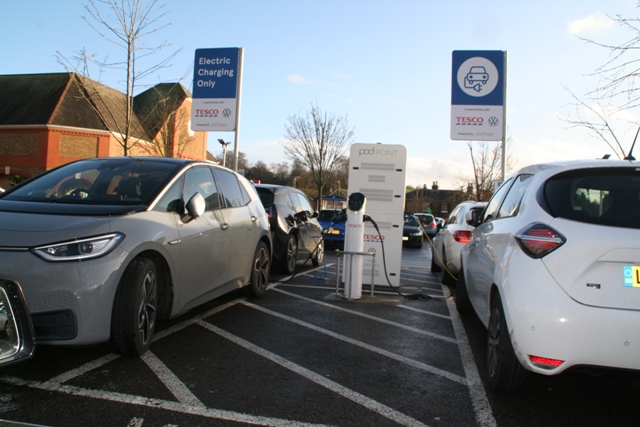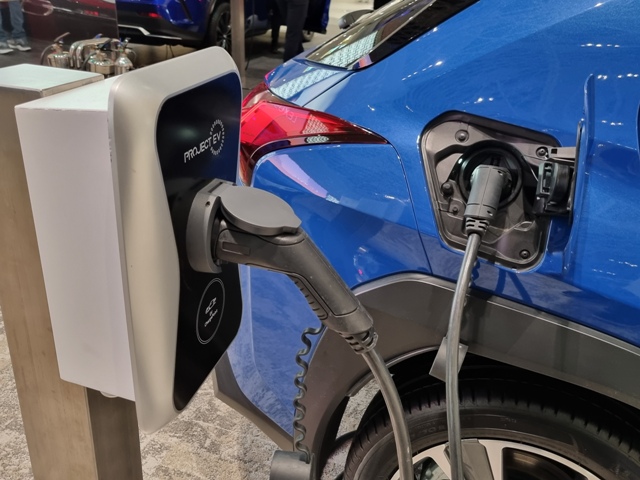
Lack of charging points for electric vehicles
The ban on petrol and diesel cars due in 2030 may have to be scrapped because of a lack of charging points for electric vehicles, industry experts warn.
The Government wants to outlaw the sale of new combustion-engine models in order to go green and cut pollution.
But industry figures suggest this may not be possible.
The Government looks unlikely to meet its target of having six or more rapid or ultra-rapid electric vehicle chargers at every motorway service area in England by the end of 2023, new research conducted by the RAC reveals.
Less than a quarter (23% – 27) of 119 motorway services reviewed by the RAC on Zapmap currently have the target number of chargers to serve the UK’s estimated 760,000* battery electric vehicles. The RAC’s research found there are around 400 high-powered charging units situated at motorway services capable of charging 682 electric cars at one time. This means there is currently an average of just over three (3.4) rapid or ultra-rapid chargers at motorway services.

When looking at the number of connectors these devices have, there is an average of nearly four (3.8) of the most commonly used CCS (Combined Charging System) connectors and just under two (1.8) CHadeMO connectors which are predominantly used by drivers of the very popular Nissan Leaf. Some six motorway services in England don’t have any high-powered chargers. These are Leicester Forest on both sides of the M1, Tebay South on the M6, Carlisle Northbound on the M1, Strensham Southbound on the M5 and Barton Park on the A1(M).
The Government’s ‘Taking charge: the electric vehicle infrastructure strategy’ published on 25 March 2022 sets out an intention to accelerate the roll-out of high-powered chargers on the strategic road network through the £950m Rapid Charging Fund so that EV drivers have confidence in the ability to undertake longer journeys. Mirroring a Government policy paper from May 2020, the document explicitly states: “We will ensure that every motorway service area has at least six rapid chargers by the end of 2023, with some having more than 12.” Currently, there are only six services in England which have more than 12 such devices. These are Exeter on the M5, Rugby on the M6, Reading East and West on the M4, Thurrock on the M25 and Wetherby on the A1(M).
The document also says rapid charge points, which can add around 100 miles of range in 35 minutes, are already widely available along England’s motorways and major A roads and that drivers are never more than 25 miles away from a rapid charge point. It adds that: “Many operators of motorway service areas have embraced the ambition to install six high powered chargers by the end of 2023. Over 70% of England’s motorway service areas now have a plan to deliver this, and we will continue to work with site operators to ensure that every site is reached.”
Information Source: Read More “
Energy Monitors , Electric Power , Natural Gas , Oil , Climate , Renewable , Wind , Transition , LPG , Solar , Electric , Biomass , Sustainability , Oil Price , Electric Vehicles,

